This biological age calculator shows how old your body really is
Your biological age can show how your lifestyle affects your health - here's how to work it out
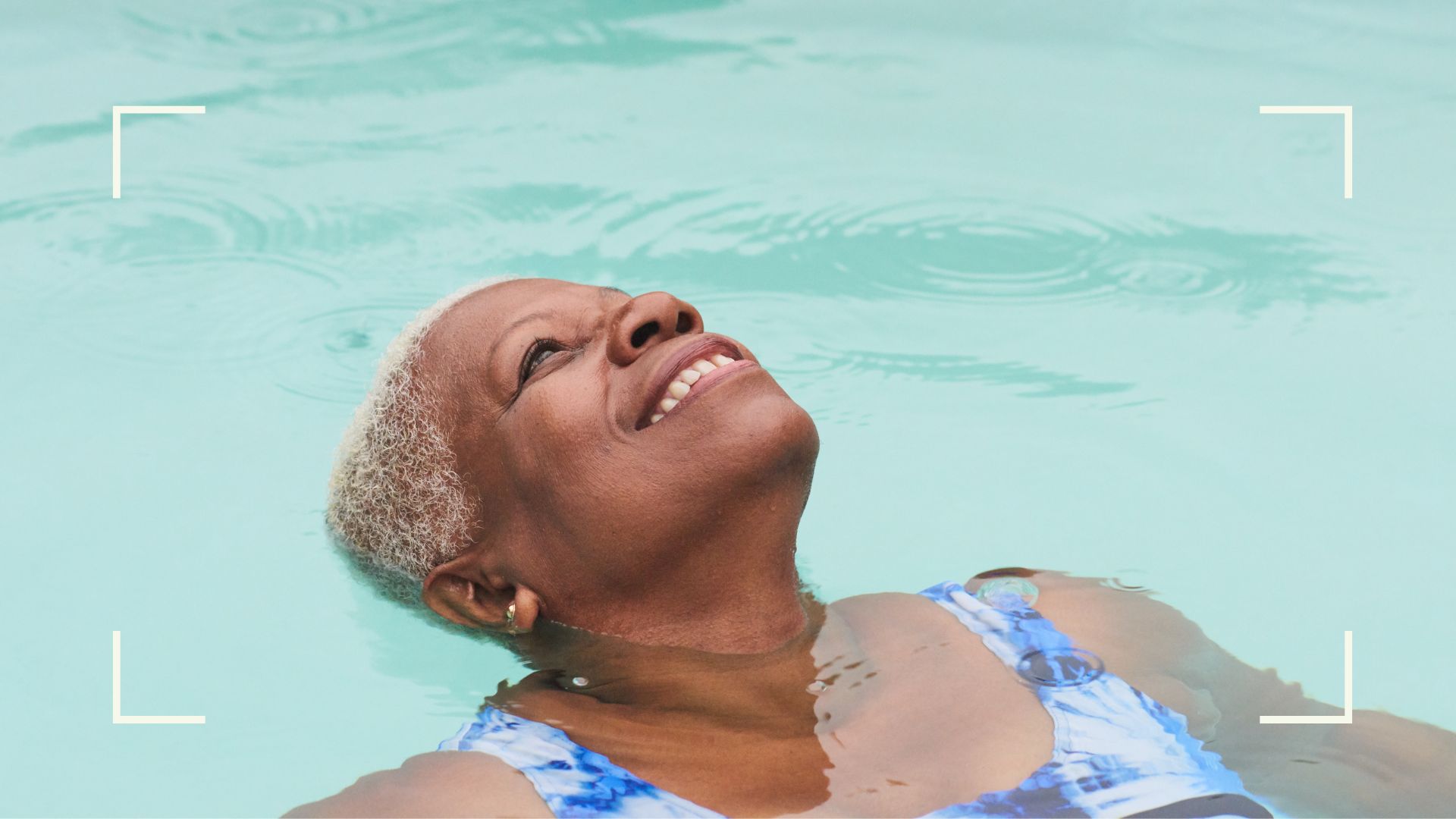

Do you know your biological age? You may have begun to think about health in terms of your chronological age, like exercising more to increase bone strength and eating differently for better gut health, but this other type of age could give you a better guide on how well you're doing. What's more, it's got little to do with how you look on the outside and a lot more to do with what's going on inside your body.
When it comes to our health, we focus so much on our age as if it's the biggest indicator of what's important. But as everybody is different, every body is going to respond differently to growing older, depending on a number of factors that have way more to do with the life you've lived, rather than what doing now.
As well as helping to understand how healthy you are today, knowing your biological age can help you make changes to your lifestyle. Whether you want to know the best exercise for longevity or combat the main menopause symptoms, we explain how your biological age will impact the moves you make. Plus, how to calculate it using our handy questionnaire.
What is our biological age?
As you've probably guessed, it differs from the number of candles on your last birthday cake. "Biological age depends on the genes that we inherited and our environment and lifestyle", says Gordon Lauc, a professor of biochemistry and molecular biology at the University of Zagreb. "We’re used to measuring age chronologically, by counting years since birth, but science tells us that every person ages differently."
There are always people who look younger or older than their age, explains Lauc, who also co-founded GlycanAge, a home testing kit that determines the body’s biological age. "However, there’s more to aging than the outside appearance, such as chronic illnesses, inflammation, and fitness age. Biological age is a comprehensive quantitative measure of the individual's inner aging process and a good approximation for overall health."
But if you're worried about what the calculator's going to say, there is some good news. "Unlike chronological aging, biological aging can be changed, improved, and even reversed to a point," he adds.
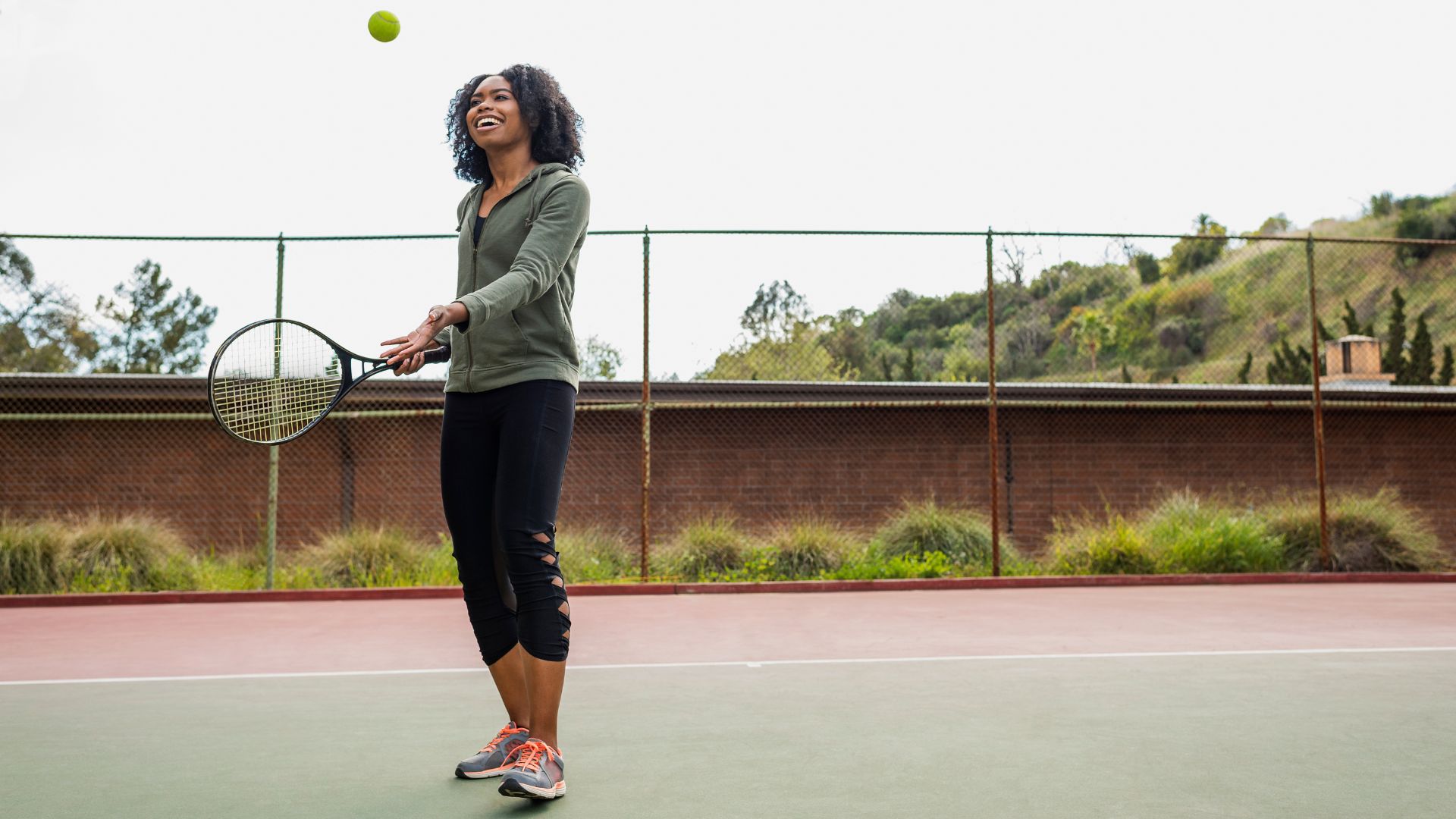
What affects our biological age?
Your biological age is influenced by your lifestyle, including your fitness levels and nutrition, so lowering it will require improving all aspects of your health. "This includes all facets of exercise, like following a strength training program that’s routinely changed every few months, cardiovascular training such as running to maintain a strong heart, and holistic training like stretching, yoga, and mobility along with mediation and relaxation to lower stress," says physical training instructor and molecular genetics specialist Sean Lerwill, pointing to a study by Saarland University that shows keeping levels of the stress hormone cortisol to a minimum through exercise will help ward off premature aging.
Sign up to our free daily email for the latest royal and entertainment news, interesting opinion, expert advice on styling and beauty trends, and no-nonsense guides to the health and wellness questions you want answered.
What you eat matters too. "Diet also plays a part, so an understanding of what makes food nutritious is vital," he explains. "Vitamins, minerals, and phytochemicals from fresh vegetables as the main ingredient of meals, and plenty of water at 800ml to 1000ml of water per kg of body weight. Learning the benefits of not drinking alcohol and caffeine will be helpful too, as will having a plant-based diet in some cases."
Building a suitable sleep routine is important as well. Everyone has an individual best time to wake up and go to bed every day but usually, seven to eight hours per night is enough for most people.
This is all broad advice though, Gordon Lauc warns, as lowering your biological age can't be a one-size-fits-all approach. "While some lifestyle factors drastically speed up aging, such as increased abdominal fat and smoking, how much weight loss or quitting smoking affects biological age depends on a combination of the person’s genes and environment," he says.
"Many tested lifestyle factors that affect aging appear to be highly individual, which points to the need of developing a personalized approach, like personalized exercises." More scientific research is needed to address this, so in the meantime, he recommends keeping a diary of lifestyle changes and regularly re-measuring your biological age to track your progress.

The biological age calculator
Use our biological age calculator to work out how well your body is aging, and if your lifestyle needs a healthy overhaul. Start with your actual age, then answer the following eight key questions, adding or subtracting years depending on your answers.
1. What's your weight?
- I’m overweight and need to lose a stone or more (+2 years)
- I’m a little overweight - I’d like to lose half a stone (+1 year)
- I’m slim and in the right weight range for my height (-2 years)
- I’m underweight (+1 year)
While body mass index (BMI) is largely agreed to be an outdated way to measure how much you should weigh, as it doesn't take factors like muscle mass (which weighs more compared to fat), it is a way to determine whether you're overweight for your age and height.
Why it matters:
Excess weight is linked to an increased risk of age-related diseases, like type 2 diabetes, high blood pressure, and arthritis. Getting to a healthy weight is one of the best things you can do to protect your health, research by Pennington Biomedical Research Center shows.
However, it tends to get much harder to lose and maintain weight in your late 40s and early 50s due to the symptoms of perimenopause, which are linked to hormonal changes. Many people report menopausal weight gain as well as a loss of muscle mass during this time, which in turn makes weight loss harder. A higher muscle mass equals a higher metabolic rate, which is the rate at which we burn calories at rest.
"You lose muscle mass with age and your metabolic rate can slow as a result," says nutritionist Rob Hobson. “Not only does this emphasize the importance of strength training at this age, as this keeps up muscle mass with enough protein, it means you need fewer calories than you did in your twenties and thirties. Many people don't know this so continue eating as normal and find that they can't lose weight.”
It can also be helpful to calculate your metabolic age to see how efficiently you're burning calories and whether you can get into a calorie deficit to lose weight.
2. What's your activity level?
- I do at least 150 minutes of aerobic exercise each week, and some strength training (-2 years)
- I don’t do much formal exercise but try to walk as much as I can and fit in a bit of yoga or Pilates for beginners sometimes (no change)
- I do little exercise (+2 years)
Why it matters:
Exercise works the heart and lungs, helps control your weight, reduces stress, and boosts endorphins for an instant mood lift. When it comes to how much exercise to do per week, the recommended is 150 minutes but recent research from Public Health England suggests that a worrying 40% of those aged 40 to 60 years old currently do fewer than 10 minutes of brisk walking each month.
Embarking on a new journey into fitness (especially if you're over 50) is particularly important. The arrival of menopause causes a gradual loss of bone density and muscle mass, as mentioned, which can lead to dangerous conditions like osteoporosis. Doing targeted strength training exercises regularly can help counteract this as it puts muscle and bone under enough pressure to force muscle fibers to grow.
You don't have to take on a huge challenge to make this change though. Just starting off with one of the best resistance band workouts, using your body weight, a kettlebell or one of the best dumbells at home is a good place to start. If you want to overhaul how you exercise, the best route is to go through a personal trainer.
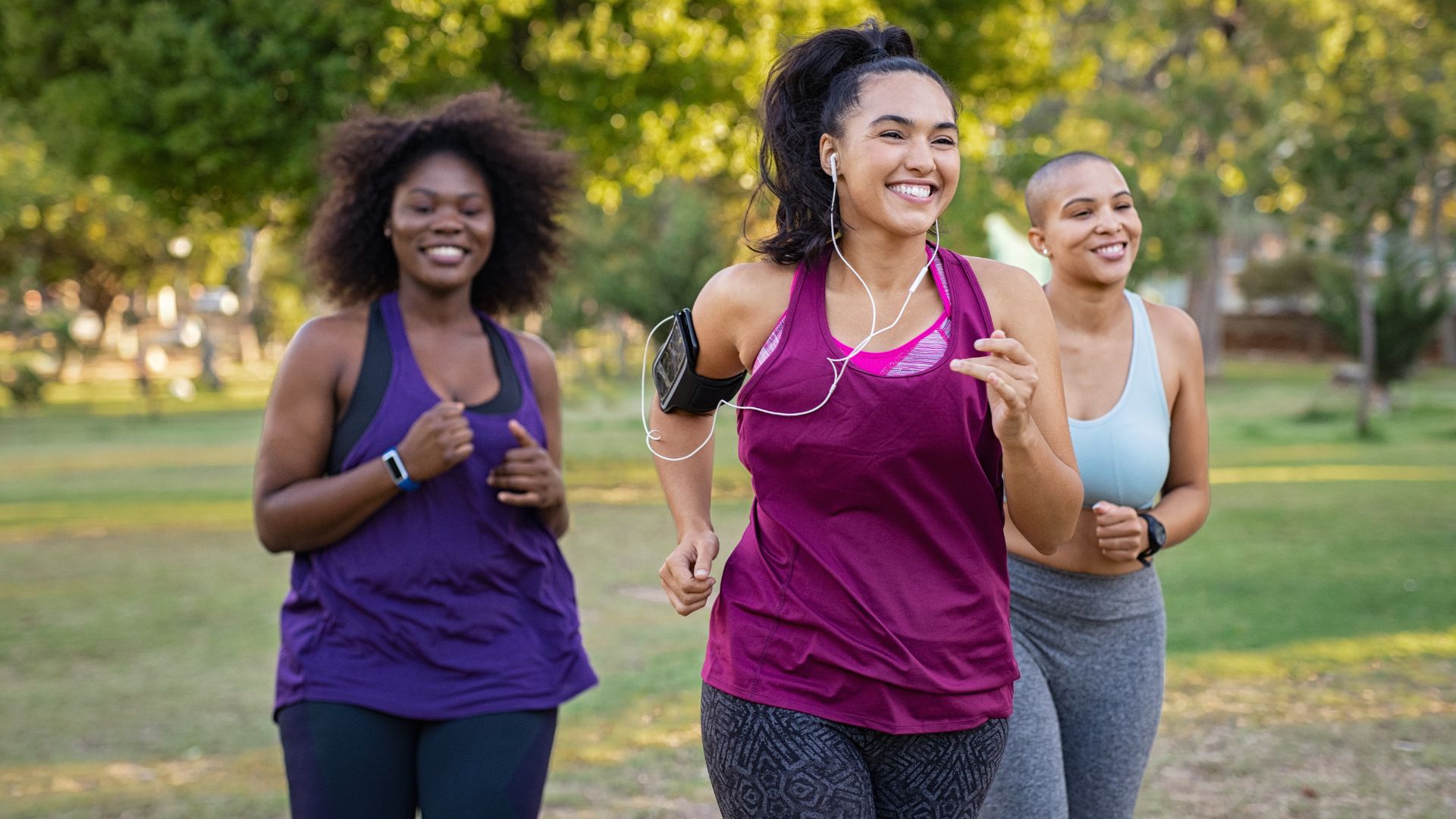
3. Which of these best describes your diet most days?
- Balanced, mostly based around fruit and vegetables, with some oily fish, small amounts of meat and very little sugar (-2 years)
- I try to eat well but sometimes reach for junk food when I’m stressed or busy (+1 year)
- My diet is not all it could be. I have a sweet tooth and live on convenience meals (+2 years)
Why it matters:
"A balanced diet gives you all the nutrients you need for overall health like vitamins, minerals, fiber, and so on," says Hobson. "A good amount of protein will help to support muscle maintenance, growth, and repair, as well as helping to keep you fuller for longer. This can help with maintaining a healthy weight as you're less likely to snack. Carbohydrates are the body's main energy source so having enough of these is essential to keep moving."
If you're having trouble keeping the balance, try the 80/20 diet rule as you'll have to swap out some foods for those higher in key nutrients. Hobson adds, "Prepare your meals from scratch wherever possible. Convenience foods are often high in sugar, which adds calories, contributing to weight gain, and salt, which is bad news for your blood pressure."
In terms of more specific nutritional advice for those looking to lower their biological age, research from Dessau Medical Center found that eating lots of fruit and vegetables is linked with giving your complexion a youthful boost thanks to the essential vitamins. Groceries particularly rich in anti-aging nutrients include watercress, spinach, papaya, broccoli, and avocado, according to the research.
4. How much do you sit down daily?
- I’m largely sedentary and sit for at least eight hours a day (+2 years)
- I sit for a lot of the day but make an effort to get up and down every hour (no change)
- I’m active. I don’t have a sedentary job (-2 years)
Why it matters:
Further research conducted by the University of California San Diego found women who are sedentary have shorter telomeres - the caps on the ends of DNA - while longer telomeres are associated with aging better. In fact, sitting for ten hours or more daily could age you by up to eight years, the study suggests.
It’s recommended adults should break up long periods of sitting with some light activity. This could be simply standing up from your desk and going for a short walk or doing a quick 15-minute yoga session on your lunch break.
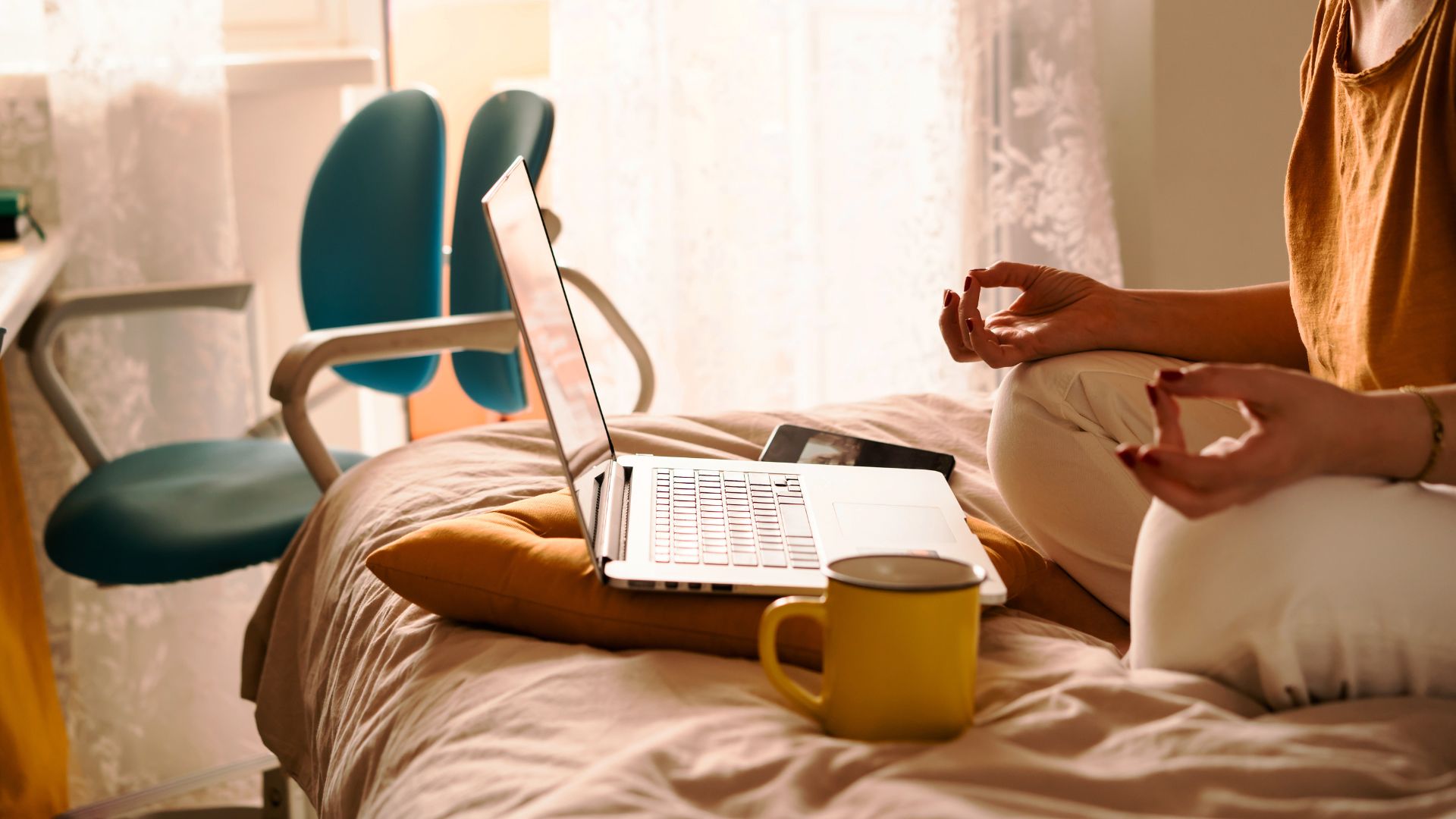
5. Do you smoke?
- No, I never have (-2 years)
- No, but I used to (no change)
- Yes (+2 years)
Why it matters:
Smoking is linked with many forms of cancer, skin aging, heart disease, and osteoporosis, according to several health bodies and universities, including the University of California. The good news is, quitting allows your body to start repairing the damage.
See your doctor for help or visit NHS Smokefree. Research from Stirling University among others shows your chances of stopping permanently are much higher if you have support, so as well as reaching out to medical professionals, call on family and friends for encouragement.
6. How's your sleep?
- I get seven or eight hours most nights and wake feeling refreshed (-2 years)
- I get less than six hours (+2 years)
- My sleep is all over the place. I lie in at weekends but sleep less during the week (+2 years)
Why it matters:
"During solid sleep, the body releases substances that play an important role in allowing your immune system to regenerate," says Dr Jenna Macciochi, lecturer in immunology at the University of Sussex. These substances enhance the ability of our T-cells to stick to and destroy cells that are infected with viruses and other pathogens.
What's more, studies by the University of Rochester in the US found the brain scours toxins during sleep, lowering the risk of dementia down the line.
However, getting enough quality snooze time can be easier said than done. As well as easing sleep anxiety by sticking to a regular sleep schedule and mastering how to fall asleep fast so you can get enough hours in, you may need to evaluate other lifestyle choices to make sure you're getting to bed early and get enough sleep.
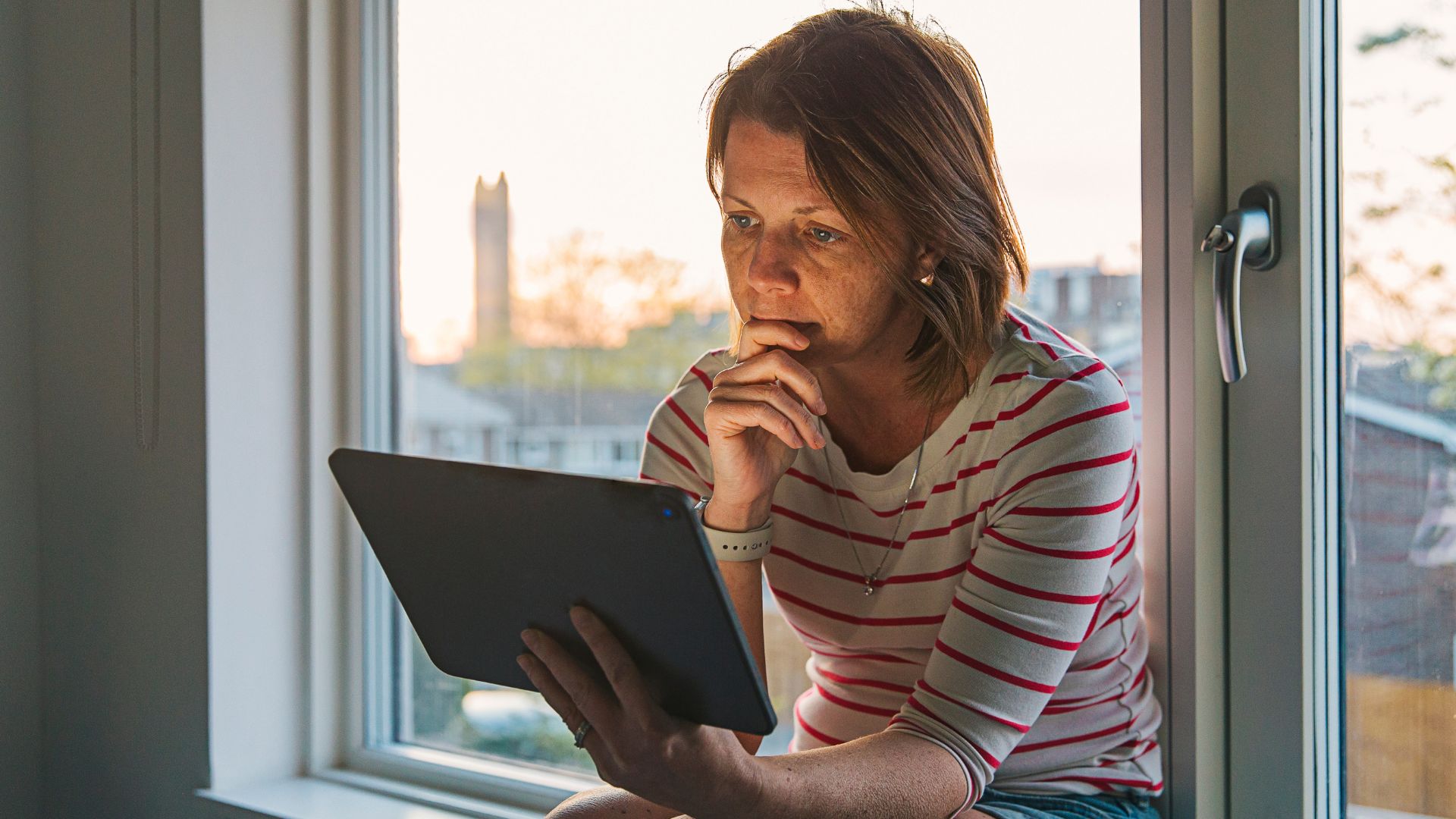
7. Are you constantly under stress?
- Yes, but I manage it with meditation, dance classes and chats with friends (no change)
- No, although I have some short-term stress at work from time to time (-1 year)
- Yes and I find it overwhelming and it affects my mood a lot (+2 years)
Why it matters:
Short bursts of stress may be quite good for us, giving the immune system a quick boost, says Dr Macciochi. "But long-term stress and habitual burnout raises markers of inflammation in the blood, which lowers immunity, and it encourages unhealthy habits," she explains.
Learning how to lower cortisol levels and reduce stress isn't always easy either, especially if you're under lots of pressure in different areas of your life. But to reduce your biological age, try to take time for mindful moments in your day or speak to your loved ones about how you're feeling, and address how to recover from burnout if you're feeling overwhelmed.
8. How much alcohol do you drink?
- Less than 14 units (one unit = one small glass of wine) a week, with a few alcohol-free days (-1 year)
- I drink every day and have more than 14 units a week (+2 years)
Why it matters:
Drinking most days could negatively affect many of your body's systems. "When you drink, the body is focused on metabolizing the toxins via the liver, which means its energy is drawn away from other vital bodily processes like cell regeneration and fat burning," says Hobson.
This is why cutting back with booze-free days, finding alcohol alternatives or a balance with mindful drinking is so important. While the NHS has approved up to 14 units a week and the CDC recommends no more than a glass of wine per night, recent research by the University of Oxford suggests that there's actually no safe level of alcohol consumption for brain health. If alcohol is a concern for you, visit drinkaware for advice.
What your biological age reveals
Your biological age tells you the impact of lifestyle choices and genetically-influenced conditions on your body. "If the numbers of your biological and chronological age match then you are aging well in terms of health risks. We'd want your biological age to be less than your actual age as this shows you have a healthy lifestyle. However, if your biological age is higher than your chronological age, there could be some problems," says Lauc.
However, it's important to remember that with the right lifestyle interventions - such as stopping smoking, lowering stress, and exercising more - you can lower your biological age and improve your resistance to many age-related diseases.
Debra Waters is an experienced online editor and lifestyle writer with a focus on health, wellbeing, beauty, food and parenting. Currently, she writes for the websites and Woman&Home and GoodtoKnow, as well as the Woman, Woman’s Own and Woman’s Weekly magazines.
Previously, Debra was digital food editor at delicious magazine and MSN. She’s written for M&S Food, Great British Chefs, loveFOOD, What to Expect, Everyday Health and Time Out, and has had articles published in The Telegraph and The Big Issue.
